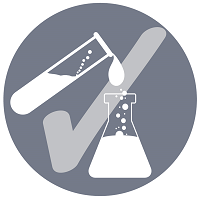Formulation and Delivery
Hot Topic: The Role of AI/ML in Accelerating Development of Nanomedicines
Application of AI in Nanomedicine Manufacturing, Characterization, and Quality Control
Wednesday, November 12, 2025
3:30 PM - 3:45 PM CT
Location: 220 / Cantilever Room
.jpg)
Vivek Agrahari, PhD (he/him/his)
Sr. Scientist, Pharmaceutical R&D, Product Development Lead
CONRAD / Macon & Joan Brock Virginia Health Sciences at Old Dominion University
Norfolk, Virginia
Hot Topic Speaker(s)
Nanomedicine’s unique potential to address complex health challenges is driving rapid advancements and enabling the development of more effective therapies. However, the inherent complexity of these systems presents major hurdles in development, scalable manufacturing, characterization, and quality control. Artificial intelligence (AI) and machine learning (ML) are emerging as transformative tools to improve efficiency and precision across the product lifecycle. In manufacturing, AI-driven platforms optimize nanoparticle synthesis, formulation design, and scale-up through predictive modeling and real-time data analysis. For characterization, ML algorithms efficiently process complex datasets, enabling accurate evaluation of nanoparticle size, shape, and surface properties. Together, these technologies accelerate product development while improving reproducibility and regulatory compliance. This presentation will explore the transformative impact of AI and ML on nanomedicine manufacturing and characterization, illustrated through case studies.
Learning Objectives:
- Explore the application of AI and ML in the manufacturing and characterization of nanoformulations.
- Understand how ML improves the analysis and interpretation of complex characterization data.
- Analyze case studies illustrating the impact of AI and ML on nanomedicine workflows.


